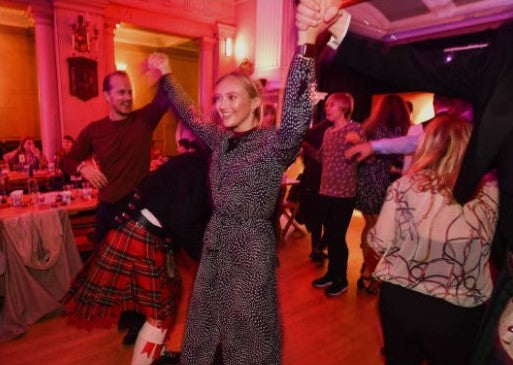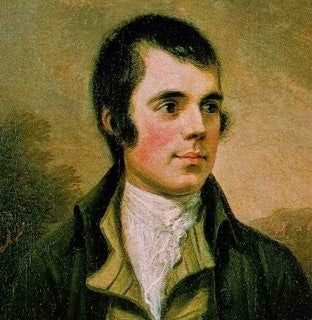
Dance yourself warm at the Midwinter Ceilidh in Devonport!
If you'll be in Auckland on Saturday 6th August, get along to the Midwinter Ceilidh at St Leo's Parish Hall in Devonport. Bring a plate for supper - and bring your friends for a fun-filled evening. Full details here
Keep yourself warm when you're outside!
Keep out those chilly breezes with our hats and scarves. Two great hat options are the flat cap and the tam -
. Our Tartan County Flat Cap is one-size with over 500 lightweight wool tartans to choose from.

. Our Tartan Tams (Tammies) are also one-size and come in the same range of over 500 tartans.
. Team these with a matching warm Tartan Scarf from the same tartan range for that smart coordinated look.
Other flat cap options include the economical one size Flat Cap (in tweed, Black Watch or Royal Stewart); and the made-to-measure Flat Cap in a wide range of wool tartans. If flat caps are not your style, check all the other varieties of Scottish headwear we have on offer here. And we also have two brushed lambswool tartan scarf ranges, one for those with a touch of the Irish, the other for the Scots.
Want to win the Best-Dressed award at the School Ball? Wear a Kilt!
We've hired out kilt outfits to several young men attending their school ball and they almost always win best-dressed, a kilt just looks so good. Here's our latest winner - he bought one of our Wool Blend Kilts and hired the rest of his Prince Charlie Outfit from us.


Some Key August Dates in Scottish History
1 August 1747: The Act of Proscription prohibits the wearing of Highland garb, in particular tartans and kilts, except within the army.
3 August 1305: William Wallace is captured near Glasgow after periods spent as a guerrilla and abroad. He is tried in London on 23 August, then executed.
3 August 1460: James II is killed during his siege of Roxburgh Castle when an artillery piece explodes. A week later his 9 year old son James is crowned James III of Scotland.
5 August 1695: King William III approves the establishment of a General Post Office in Scotland.
6 August 1881: The birth near Darvel of Sir Alexander Fleming, the eminent biologist primarily remembered for his discovery of penicillin in 1928.
7 August 1548: Five year-old Mary Queen of Scots sets sail for France to escape Henry VIII's English troops.
8 August 1296: The Stone of Scone, or the Stone of Destiny, is removed from Scone Abbey by King Edward I of England.
10 August 1935: The Perth Museum and Art Gallery's new building is opened by the Duke and Duchess of York, later to become King George VI and Queen Elizabeth.
11 August 1586: Mary Queen of Scots is arrested after writing a letter approving of a plot to kill Queen Elizabeth.
14 August 1337: The future King Robert III is born at Scone Palace.
15 August 1771: The birth in Edinburgh of Sir Walter Scott, the world's first international literary superstar.
16 August 1944: John Logie Baird gives the world's first demonstration of a fully electronic colour television display using a 600 line system.
17 August 1648: Oliver Cromwell heavily defeats the Scots at Preston, leading to a return to power in Edinburgh of the radical Covenanters of the Kirk Party under the Marquis of Argyll.
19 August 1745: Charles Edward Stuart raises his standard at Glenfinnan.
22 August 1138: The Scots army under David I is defeated at the Battle of the Standard at Northallerton in Yorkshire. However, the Treaty of Durham that follows in 1139 gives David control over Northumbria and Cumbria.
23 August 1305: The trial and execution in London of Sir William Wallace, one time Guardian of Scotland.
24 August 1802: The birth in Fintry of John Macgregor, who would establish a shipbuilding yard on the River Clyde and do much to pioneer the development of iron ships.
25 August 1819: The death of James Watt, the engineer and inventor whose improvements to the steam engine were fundamental in bringing about the industrial revolution.
26 August 1565: Mary Queen of Scots leads an army out of Edinburgh to suppress a rebellion led by her half brother James Stewart, 1st Earl of Moray, who is opposed to her marriage. She puts the rebellion to flight in what becomes known as the Chaseabout Raid.
29 August 1850: The Royal Border Bridge carrying the main line railway across the River Tweed at Berwick-upon-Tweed is opened by Queen Victoria.
31 August 651: The death in what is now St Aidan's Church in Bamburgh of St Aidan of Lindisfarne, the Apostle of Northumbria.
It's hard to know where to stop - this is just a selection of dates!







